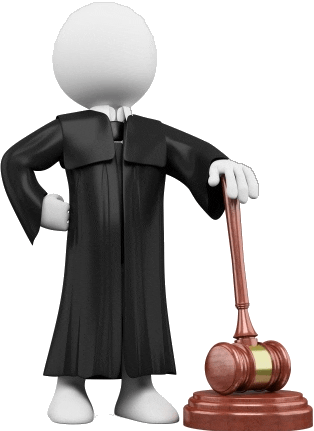Fighting Speeding Tickets – Before Court
Fighting a Speeding Ticket
The reason for fighting a speeding ticket is clear, any ticket over 15km/h has demerit points and can affect your insurance rates for years.
When it comes to fighting a speeding ticket, the reasons are quite straightforward. Speeding tickets, especially those for driving over 15 km/h above the limit, carry demerit points and can significantly impact your insurance rates for an extended period.
 For drivers, actively fighting a speeding ticket is essential to:
For drivers, actively fighting a speeding ticket is essential to:
- Avoid Demerit Points: Accumulating demerit points can lead to licence suspensions.
- Maintain Low Insurance Rates: Speeding tickets can cause a noticeable increase in your insurance premiums.
- Prevent Driver Licence Suspensions: Certain levels of speeding can lead to the driver licence suspensions.
The goal in fighting a speeding ticket is to keep it off your driving record, preserve your demerit points, and maintain a clean driving history.
This proactive approach is crucial in managing the long-term implications of a speeding ticket on your driving privileges and financial costs.
Before any Court Date
In discussing strategies for fighting speeding tickets, drivers should;
- work to have the ticket dismissed completely
- if you cannot have the ticket dismissed,
- reduce insurance implications, and
- demerit points
- delay the ticket going on the driving abstract
- as long as possible, and to
- stop the insurance company from seeing the conviction
Even if the driver believes in paying the ticket at some point, it’s better to pay the ticket 6 or 10 months after the insurance renews, than right away.
What month does your insurance renew? The answer is on the pink slip for the insurance.
Drivers should seek to have any court date after an insurance renewal, not before.
Why Delay a Traffic Ticket?
You want to delay the ticket because:
- insurance companies won’t see the speeding ticket until
- after the trial date,
- so any insurance implications are delayed
- after the trial date,
- officers move around & retire,
- if the officer doesn’t come to court,
- the ticket gets canceled
- if the officer doesn’t come to court,
- trials for traffic tickets have a time limit
- demerit points do not go on the record, until after the case has gone to court
- convictions do not go on the driving record, until after a trial date
Not all speeding ticket trial are winnable. Where a driver cannot win the ticket, delaying a conviction can save insurance increases and demerit points.
Setting a Court Date
When you’re fighting your speeding ticket, the first thing you have to do is request a court date. Requesting a court date is the terminology to say you’re:
- disputing the charge
- fighting the ticket
- filing for a court date
To file for a court date, the ticket must taken to the court listed on the back of the ticket within fifteen (15) days.
Most courts allow 30 days, but some courts like in the City of London will convict the driver if the ticket has not been filed within the fifteen (15) day period.
What is a Notice to Appear
To dispute a speeding ticket, the ticket must be taken to the court where it is issued from and a request made for a court date.
Traffic tickets can be filed for a court date online for Toronto and GTA area courts.
At the court, the drive must complete a form called a “Notice of Intention to Appear”.
This is a court form saying that you wish to dispute the charge. You complete the form by adding your address information and the ticket number to the form.
The court then takes the form and either issues a court date right away or sends a notice in the mail.
Use caution accepting advice from clerks at the courthouse. The clerks are told to “steer” drivers into Early Resolution Meetings. Early Resolutions saves the courts’ time and money, usually at your expense.
First Attendance and Early Resolution
The court clerk may try to convince you to “meet with the prosecutor” in a hearing called:
- First Attendance Meeting, or
- Early Resolution Hearing
The court clerk will offer to let you speak to the prosecutor to “avoid a contested trial” (See Speeding Ticket Options) and see if an agreement can be reached.
The clerk will add further that “if you cannot come to an agreement then you can always proceed to trial”. Do not do this, it is not in your best interest.
The Prosecutors goal at these meetings is to have you plead guilty to a reduced charge.
What they won’t tell you is that any reduced charge will still affect your insurance regardless if there are demerit points or not. Do not agree to any of these meetings, as on the court date:
- resolutions are normally available
- it may not be in your best interest to plead guilty to reduced charges
- you are allowed to discuss the case with the prosecutor before any hearing
- if you plead guilty to anything it still affects your insurance
If you agree to meet the prosecutor, you lose any chance of winning because:
- officer does not have to attend for your hearing,
- you lose any chance of winning on a technicality, and
- ticket goes to insurance and any demerits go on your driver record forthwith.
If you accept the Early Resolution Process or sometimes called “First Attendance”, the clerk of the court will schedule an appointment with the prosecutor forthwith.
What is the Prosecutors Job?
The prosecutor job is to prosecute and convict the driver of speeding. There is no free help or duty counsel in traffic court.
The prosecutor is employed by the municipality to help the police and court.
The prosecutor:
- is not in court to help you
- is not there to advise you if the officer is going to appear
- will not tell you if there are legal arguments that apply to your ticket
- will not tell you if there are mistakes on the original (court’s copy of the ticket),
If there is something wrong with the officer’s investigation or the ticket, the prosecutor is not obligated to tell the driver. The prosecution does not advise or disclose errors or legal issues to you the defendant.
When you appear in traffic court in Ontario, prior to the court starting, the prosecutor will call each of the defendants to ask them how they are pleading to the charge, guilty or not guilty.
The prosecutor, as the name implies, is there to prosecute the defendants, they are not there to help you.
As well as prosecuting the cases the prosecutor’s job is to get through the court docket (the court cases) as quickly and expediently as possible.
The prosecutor doesn’t want to run trials as they are time consuming for the court, police and judge. The prosecutor wants the defendants to plead guilty to reduced charges, to the benefit of the court, not the driver.
When the driver says that they are pleading not guilty to the charge, the prosecutor may then offer to “reduce the amount of the speed and/or the fine”.
If the speeding ticket is reduced, the demerit points may also be reduced but not always. Accepting a reduced charge may or may not be in the best interests of the driver as it is still a conviction. Reduced speeding tickets still appear on your insurance for 3 years.
Understand what you’ve accepting as there may be no benefit to a reduced charge at all and/or the case could have been won at trial.
Saving demerit points has little benefit to a driver as demerits do not affect insurance, unless you go over the limit for your class of licence.


